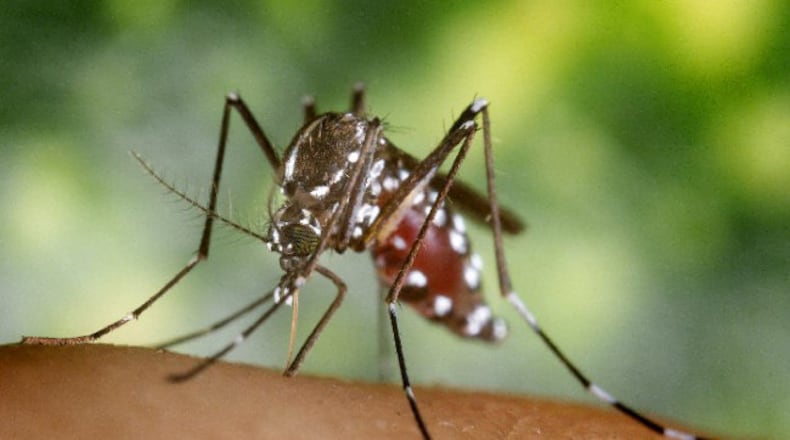Mosquitos trapped throughout the county are submitted to the Ohio Department of Health (ODH) as part of the Vector-Borne Disease Program.
Last week, the health district announced that samples taken from the South Charleston area and Springfield were among the first West Nile-positive ones taken in the county this year.
In response to the continued confirmed presence of the virus, the health district is inspecting the affected areas and working with property owners to reduce breeding sources by draining stagnant water or treating it with products containing Bacillus thuringiensis israelensis (Bti.) Bti is safe for humans and pets.
The health district is also distributing flyers in the affected areas, misting with mosquito adulticide (also safe for people and pets) when weather permits and continuing to monitor for West Nile.
West Nile Virus is most commonly spread by infected mosquitoes and can lead to severe fever, encephalitis (inflammation of the brain) or meningitis (inflammation of the lining of the brain and spinal cord).
The primary vector in Ohio is the northern house mosquito. Mosquitoes become infected when they feed on infected birds. Infected mosquitoes can then spread the virus to humans and other animals when they bite, according to a health district press release.
Last August, two women – one in Springfield, the other from the Enon area – tested positive for West Nile. Both recovered, according to the health district.
Approximately 80% of those infected with WNV will not show symptoms, but there is no way to know in advance if you will develop an illness. Those who do develop symptoms usually do so between three to 14 days after they are bitten by the infected mosquito. There is no specific treatment for WNV infection, and care is based on symptoms.
About one in 150 people infected with WNV will develop severe illness. The severe symptoms can include high fever, headache, neck stiffness, stupor, disorientation, coma, tremors, convulsions, muscle weakness, vision loss, numbness and paralysis. These symptoms may last several weeks, and neurological effects may be permanent.
Up to 20% of those who become infected will have symptoms that can include fever, headache, body aches, nausea, vomiting and sometimes swollen lymph glands or a skin rash on the chest, stomach and back. Symptoms can last for a few days or up to several weeks.
The best way to avoid the West Nile virus infection is to prevent mosquito bites, and the best way to avoid being bitten by a mosquito is to eliminate habitats where mosquitoes can survive and reproduce, CCCHD said.
Residents’ cooperation in getting rid of standing water is the most effective means of reducing mosquitos. Even small amounts of standing water can be a breeding site for mosquitos, according to the health district.
Other methods of preventing bites include applying repellents on exposed skin, wearing long sleeves and pants or staying indoors. If traveling, check for travel advisories, have repellent and long clothes readily available, do outside activities when mosquito activity is less prevalent, make sure screens on windows and doors are free of holes or rips, and use air conditioning instead of opening windows.
About the Author

